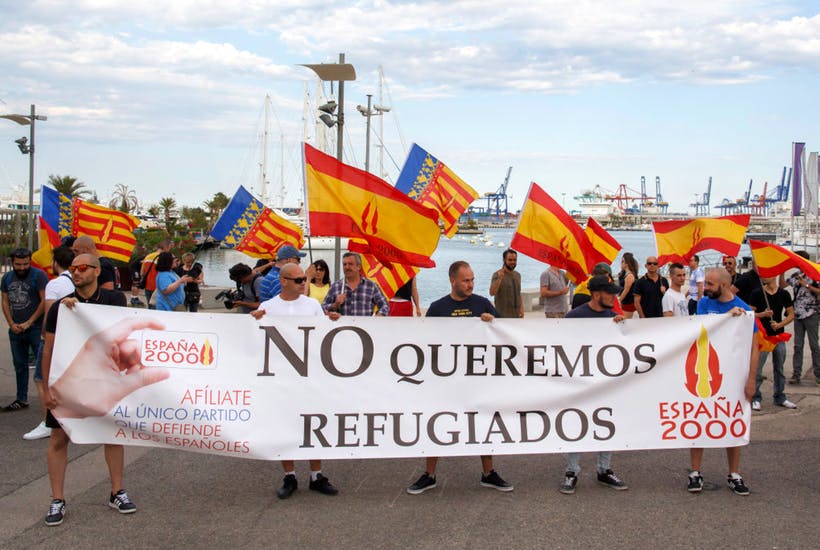When Italy’s interior minister, Matteo Salvini, refused to let the rescue ship Aquarius – which was carrying 629 men, women, and children – land, the European Union was presented with yet another migration emergency. The vessel was stranded for days in the Mediterranean looking for a place to dock, with an EU-wide solution nowhere to be found. Eventually, Spain’s newly-installed socialist government stepped up and allowed the boat to dock.
Madrid’s act of statesmanship was a win for everybody: it allowed Salvini to claim that his tough immigrant policy was working; Spain’s prime minister, Pedro Sanchez, could burnish his credentials as a humanitarian; and it solved a problem for the EU, which has been pathetically ineffective on the migration question. But just as is happening in Italy, Greece and Germany, there may come a time when the Spanish public gets tired of being Europe’s latest welcome mat for tens of thousands of people trying to flee Africa.
It’s true that migration flows into the EU have decreased dramatically. In 2015, 1.02m people made the perilous journey across the Mediterranean; last year, that was down to 172,000. And for all of Salvini’s complaints about Italy being Europe’s refugee camp, the number of migrants arriving has fallen dramatically. German asylum claims are also way down.
Spain, however, is experiencing an influx. The number of migrants who crossed from North Africa to Spain tripled last year, and the numbers for 2018 are set to rise even higher. Nearly 20,000 asylum-seekers have arrived in the first six months of the year – nearly as many as claimed asylum in the whole of 2017.
Why is this a concern for the EU? Because if the experiences of Germany, Italy, Austria, and all the rest reveal anything, it’s that people will eventually clamour for more restrictionist policies if their governments are unable to handle the surge. There was a time not so long ago when crowds of Bavarians were welcoming tens of thousands of refugees into Germany and volunteering their time and resources to integrate them into German society. Italy, too, was once thought of by EU bureaucrats in Brussels as an eager participant of the pans-European project: if people were fleeing war in their homelands or searching for economic opportunity, the Italians could be relied on to process their asylum requests.
The problem with that line of thinking is that it was incredibly naive. Europe may be a place with open internal borders, but national governments are still responsive to their own people first and foremost. Germans and Italians grew tired and exasperated with playing host to hundreds of thousands of people who required state benefits to survive. Traditional political parties like Italy’s centre-left Democratic Party and Germany’s centre-right Christian Democrats started being punished at the polls. Those politicians who refused to adapt to a frustrated electorate were either voted out or returned to office on the opposition benches.
Much of the blame for this must sit with the EU. Despite pleas from Rome for EU assistance in reallocating some of the more a half million refugees and migrants who have landed on Italian shores since 2013, EU bureaucrats were unresponsive. When the EU did settle on migrant quotas in 2015, the numbers failed to keep pace with the continued landings. Italian voters, feeling left in the lurch, punished pro-EU parties in response.
Spain’s prime minister could very well go through the same political life-changing experience. If Spain becomes the next Italy, with a sclerotic EU sitting on its hands and unable to reform the rules codified in the Dublin System, Madrid may confront the same anti-migrant, anti-establishment, and populist sentiment that nearly toppled Angela Merkel from the Chancellery.
Europeans may think of themselves as humanists and progressives, but nativism and nationalism is never far from the surface. In time, the Spanish will become as impatient on migration as everybody else. And when that time arises, the Spanish government will have two choices: adopt stronger border controls or risk drowning in Europe’s populist wave.

























